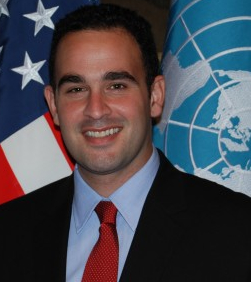I’m a doctor who focuses on the treatment of people who struggle with substance abuse, dependence and addiction and a variety of other health problems associated with their drug use. I conduct medical research to develop new treatments for them and improve the ones we already know work.
Because of where I remain professionally focused, it’s hard for me to find time to study how what I do fits into the much, much larger picture of our nation’s drug policies.
That’s where Kevin Sabet comes in. From 2009 to 2011, he served as a senior advisor at the White House Office of National Drug Control Policy (ONDP). He’s now a consultant who works with governments, non-goverment organizations and nonprofits on a wide range of drug policy issues. As his website notes, he specializes in evidence-based drug prevention and treatment (that’s where I come in), domestic and international law enforcement. He’s also hard at work, studying the impacts of drug legalization and so-called “medical” marijuana.
Recently, Mr. Sabet explained very simply and clearly a few of his stances on aspects of drug policy. I really track with his thoughts and hope you’ll read them. In short:
1. Current drug policy leaves a lot to be desired, but we should reform it, not scrap it. Drug policy should also be viewed dynamically. Laws and policies have to be constantly monitored and adapted to address drug trends.
2. As Mr. Sabet writes, “Drug legalization is a simplistic solution to a complicated problem.” (Really, read his explanation of why. He’s right.)
3. Smoking marijuana (and eating it baked in brownies, cakes, pies, cookies and candy) isn’t medicine. However, there are more than 80 active compounds in marijuana that should be isolated for research. We already have two medications derived from these components, Marinol and Cesamet. An oral spray already approved for use in parts of Europe, Sativex, is in end-stage testing here in the United States and is expected to win the Federal Drug Administration’s approval. It addresses legitimate medical concerns without creating a dependence-inducing intoxication, or “high.” As Mr. Sabet writes:
The makers of Sativex are doing it right – working within the established Food and Drug Administration (FDA) process rather than through the shady political process of “medical marijuana” initiatives in various states. Voters aren’t qualified to determine what medicine is, but scientists sure are: the medical profession does not tell us to chew on willow bark; it tells us to take a particular dosage of aspirin. Similarly, we wouldn’t ask someone to smoke opium in order to reap the benefits of morphine. So it makes little sense to smoke marijuana to get any medical benefits that the plant might offer.
4. The criminal justice system helps protect our nation’s public health — but it has to be used wisely. We’re still learning in this arena — and, again, Mr. Sabet explains well the kinds of lessons we need to learn, and maybe learn at a faster pace.
4. Treatment and prevention work, but they’re not enough to take care of the problems we have with drug use. As a doctor, I would love to see our country invest more, much more, in addiction treatment and preventative education and healthcare. However, I agree with Mr. Sabet that these things must move in tandem with other approaches shown to change behavior and steer our nation in more positive directions, such as judicial training, drug courts and intensive probation programs, such as HOPE.



We welcome all thoughtful comments, but please abide by our commenting rules